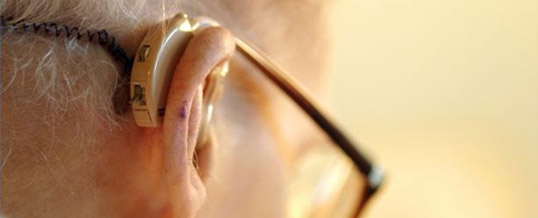In addition to our capacity to love and care for one another, perhaps a human being’s greatest gift is the ability to communicate. Thanks to breakthroughs in technology, we now can carry on conversations in dozens of ways, both real and virtual.
But our innate skill to communicate orally, which comes so easily to most of us, can be a challenge for others, primarily due to physical impairments, like being “clinically deaf” or “hard of hearing.” Major differences exist between the two and the terms are by no means interchangeable – perhaps another article for another day.
Since many of those with hearing challenges are senior citizens who had no problem communicating when they were younger, there can sometimes be a curmudgeon-like response when trying to engage with them in even a simple chat. This is especially true when attempting to talk in noisy places, such as restaurants or sports arenas.

Brian Carrigan
Founder & CEO
The good news is that there are a host of tips for keeping the lines of communication open with hearing-impaired seniors. Many of the suggestions are common-sense: don’t eat, chew or cover your mouth while talking; don’t speak from another room or while walking away; don’t shout. Other helpful tips may not be so obvious.
For openers, don’t assume that because a hearing-impaired person has a hearing aid they can hear and understand all speech. Try to be within 4 to 6 feet of the person with whom you are engaged, and resist the urge to speak directly into the person’s ear (this distorts the message and hides visual clues). Always remember to make eye contact. Facial expressions and hand gestures are critical for communicating your emotional state while speaking.
Also take care to make sure the person you are communicating with understands you. If not, try phrasing your sentence or information in another way, using similar, but different words. And please mask any facial or verbal frustration. Trust me when I say, it is more embarrassing and worse still, exasperating, for them than it is for you.
For those with a high level of hearing impairment acuity, using the good ‘ole fashioned pencil and paper is the way to go. Or, for seniors comfortable with technology, tablets and smart phones can be a fast and easy way to stay in touch, not only remotely, but even when you are in the same room. Writing, typing, or texting works especially well in crowds when noise levels can prevent a senior from hearing clearly.
While striking up and maintaining conversations with the hearing-impaired can prove challenging, it may just be one of the toughest jobs you’ve ever loved.
 RAH in the News – OnlineAthens
Prev post
RAH in the News – OnlineAthens
Prev post



